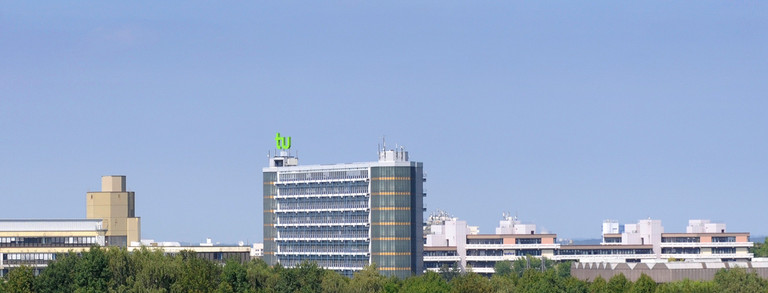TU Dortmund University Establishes Dortmund Life Science Center (DOLCE)

How is TU Dortmund University currently positioned in the area of drug research?
Professor Lütz: We’re already very well positioned. TU Dortmund University has been conducting widely visible and successful research in this field for a long time within the profile area “Chemical Biology, Drug Research and Process Engineering”. We cover a broad range from molecular interrelations to new process engineering tools. Our aim is to develop new chemical, biotechnological and pharmaceutical processes and products. The main responsibility for the profile area lies with the Department of Chemistry and Chemical Biology and the Department of Biochemical and Chemical Engineering.

Professor Kast: In addition, we’re collaborating with several strong non-university research institutions that are also based in Dortmund: the Max Planck Institute of Molecular Physiology, the Leibniz Institute for Analytical Sciences (ISAS) and the Leibniz Research Centre for Working Environment and Human Factors (IfADo). We’re working with industrial partners, for example, in the Drug Discovery Hub Dortmund on the efficient transfer of academic innovations into pharmaceutical applications.
At the heart of this powerful research structure, DOLCE will, above all, conduct fundamental biological research. To what extent will this strengthen activities?

Professor Kast: DOLCE makes it possible for the first time to cover the entire scope of preclinical research in drug discovery and the associated production processes in Dortmund. The center closes a gap in cell research, which can greatly improve our understanding of mechanisms of action and metabolic processes through cell culture experiments or computer simulations.
Professor Lütz: The new center will provide important stimuli from the life sciences. In this way, the entire value chain can be examined, from basic research to the application of insight, for example, in the field of tumor research and immunology. Our aim is to work on highly important questions from an interdisciplinary perspective.
Four new professorships form the center’s scientific core. Which main topics exactly will they be working on?
Professor Lütz: Two of the four new professorships are hosted by the Department of Biochemical and Chemical Engineering. The “Functional Metabolomics” professorship shall investigate the metabolome of eukaryotic cells with innovative methods. Possible areas of application are the biotechnological production of bioactive substances or the development of diagnostic markers. The goal of the “Computational Systems Biology” professorship is to develop models for complex biological processes and systems from molecular to cellular and organ level and to use these models to answer fundamental questions in the field of biology.
Professor Kast: The two other professorships are hosted by the Department of Chemistry and Chemical Biology. The “Cell Biology” professorship will investigate innovative cell biology questions, e.g., in oncology or immunology. The “Complex 3D Cellular Systems” professorship focuses on questions in the field of biology that require 3D cell culture systems to answer them, especially those that can simulate physiologically important, organ-like properties and interact with their environment. All four positions were advertised internationally in early November. All professorships will be jointly affiliated with both departments in order to foster sustainable synergies.
Contact for further information:





![[Translate to English:] Partner Four hands are holding the green logo of TU Dortmund University](/storages/tu_website/_processed_/1/d/csm_Partner_Nicole_Rechmann_KW_670eba0154.jpg)




![[Translate to English:] Forschung An apparatus with tubes in a laboratory](/storages/tu_website/_processed_/0/c/csm_Forschung_Juergen_Huhn_4fa3153b51.jpg)
![[Translate to English:] Studium Five students are sitting in a lecture hall. They are talking to each other.](/storages/tu_website/_processed_/c/9/csm_Studium_FelixSchmale_dbdbfb0dd7.jpg)





